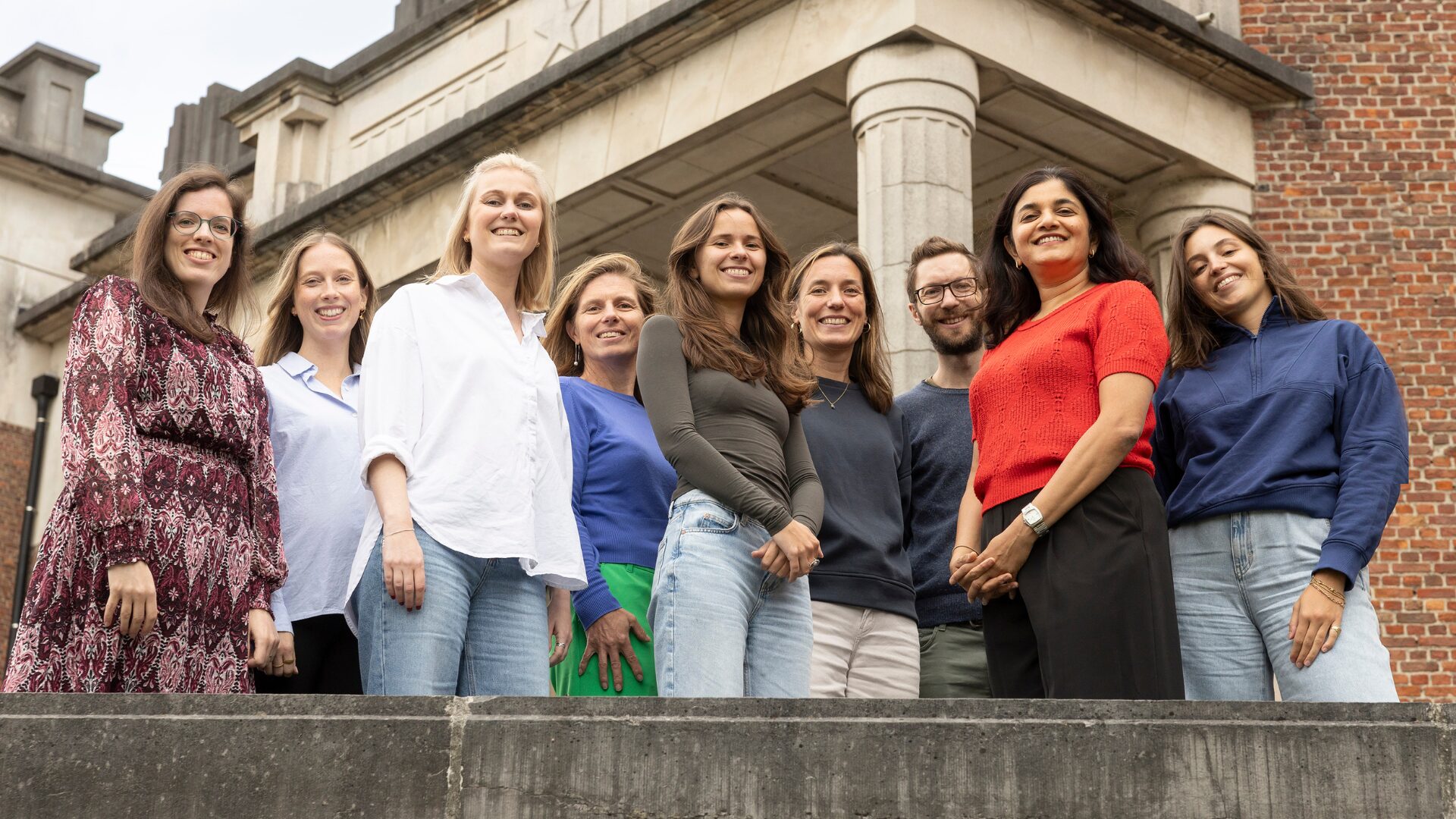Whether it’s a city tour, chocolate workshop or introduction to axe throwing, the activities organised by MONDO always fill up quickly. The idea behind the network is to bring international students, researchers and staff members together in an informal setting. After five years, the initiative is still going strong.
For international students, it’s often a bit of a shock: on Friday evening, Flemish fellow students return home with a trolley bag full of dirty laundry, only to return on Sunday evening or Monday morning. And evenings and weekends can also be long for international researchers and staff members who haven’t made a lot of friends yet.
Parul Goel, International Students Office: ‘With more and more international students, researchers and staff members at our university, there was a growing need to cater specifically to this group. We wanted to create an international community, so the Antwerp Doctoral School, International Staff Office and International Students Office joined forces to found MONDO a little over five years ago. We already had the knowhow, thanks to the network’s predecessor. But these days, the initiative is structurally embedded in our workload and there’s also a budget, which is very nice of course.’
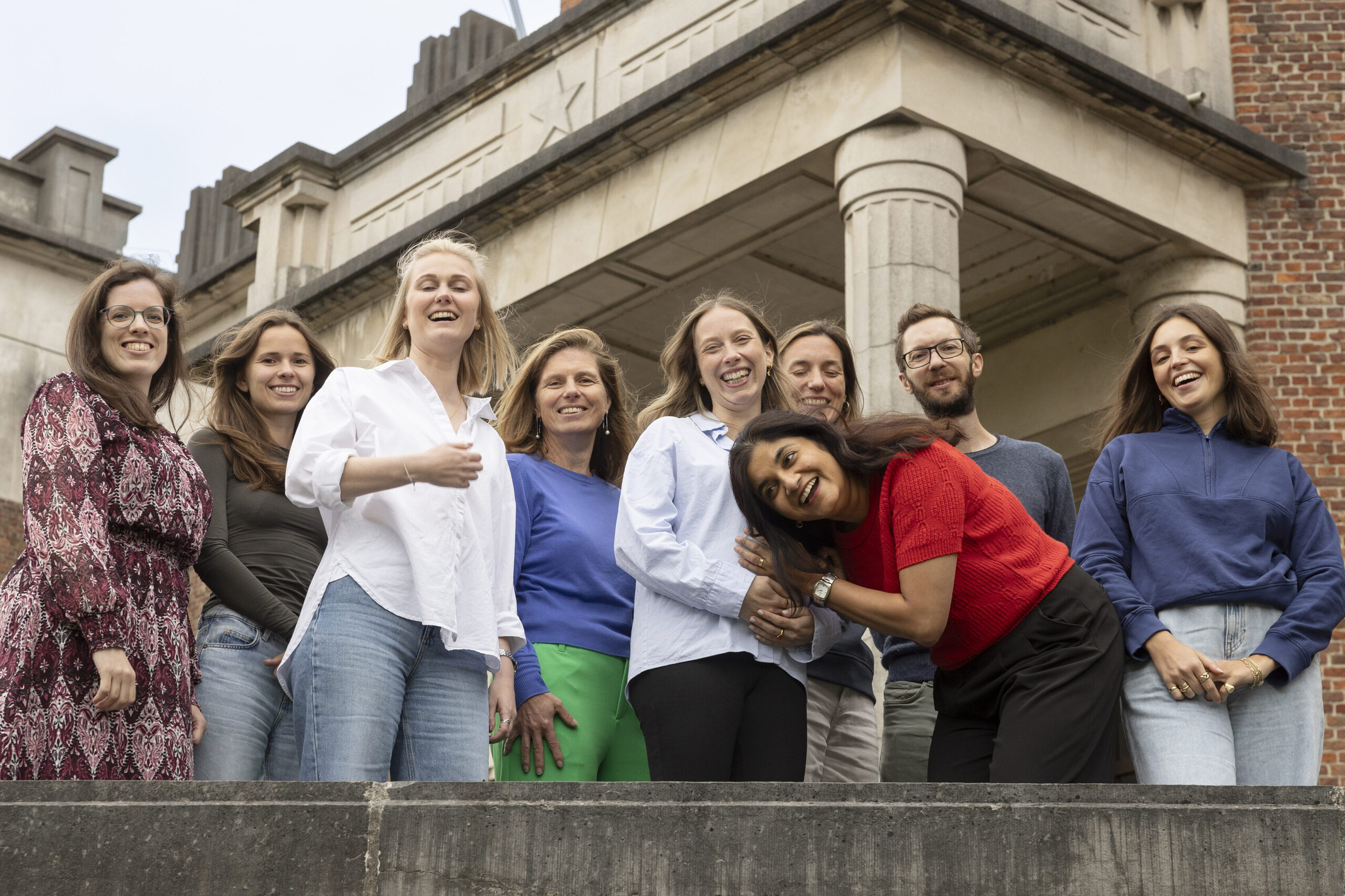
Erika Leunens, Marnix Van Roosbroeck, Parul Goel, Margaux Gianolla
How does MONDO work exactly?
Katleen Anthierens, Antwerp Doctoral School: ‘Every month, we organise an informal activity for the members of our international community, i.e. students, researchers and staff members. We make sure the programme is sufficiently varied, ranging from a museum visit or a boat tour of the Port of Antwerp to a visit to the local Christmas market, a potluck meal, bowling, a game night, etc. This way, we help internationals at our university build a social network. Registration is mandatory, but participation is free.’
Parul: ‘To make sure things stay informal, we generally limit the number of participants to around twenty. The set-up works: for most people in the target group, MONDO has really become part of their social lives. This is also the reason why we regularly schedule activities on Saturdays or Sundays. After all, internationals who haven’t been here for that long generally don’t have their weekends all planned out. We always have two or more people from our own services joining the activities. This allows the participants to come to us with any questions they may have. And for us it’s nice to stay updated on what’s happening within the international community.’
Lotte Coenen, International Staff Office: ‘Personally, what I enjoy most about these activities is seeing the faces behind the emails and questions we receive every day.’
‘Our activities always fill up within ten minutes. It often feels a bit like we’re Tomorrowland.‘
Parul Goel, International Students Office
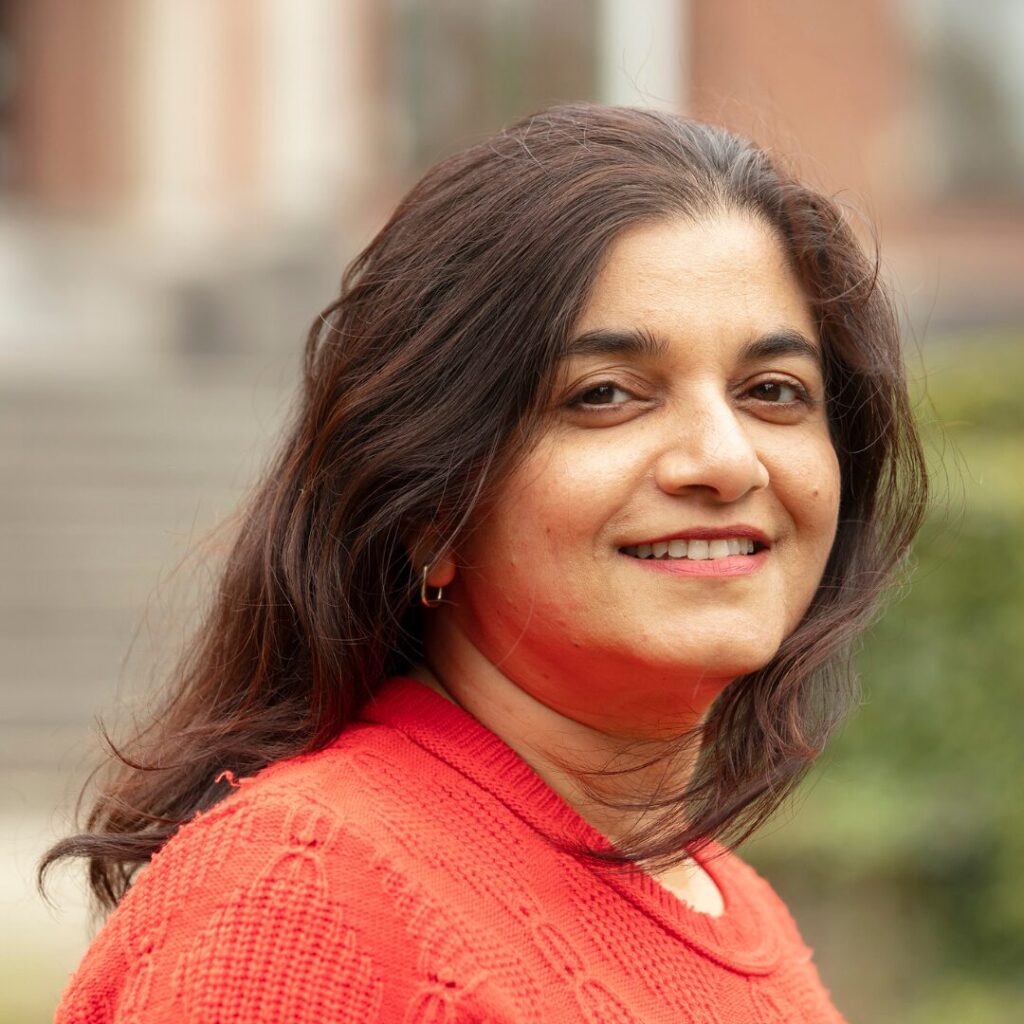
Have you noticed there’s a big need for this?
Parul: ‘Yes, our activities always fill up within ten minutes. It often feels a bit like we’re Tomorrowland (laughs). We generally see a nice mix of students, researchers and staff members. It’s just during exam periods that there are fewer students present, of course.’
Lotte: ‘How much they appreciate it is also apparent from the feedback. Some participants literally come up to us to thank us for doing this. They tell us it prevents them from getting lonely. To hear something like that is very motivating to us.’
Kristel De Poorter, Antwerp Doctoral School: ‘I’ve met alumni who told me how very important such a social network is. Some even said it was as important as the study programme itself.’
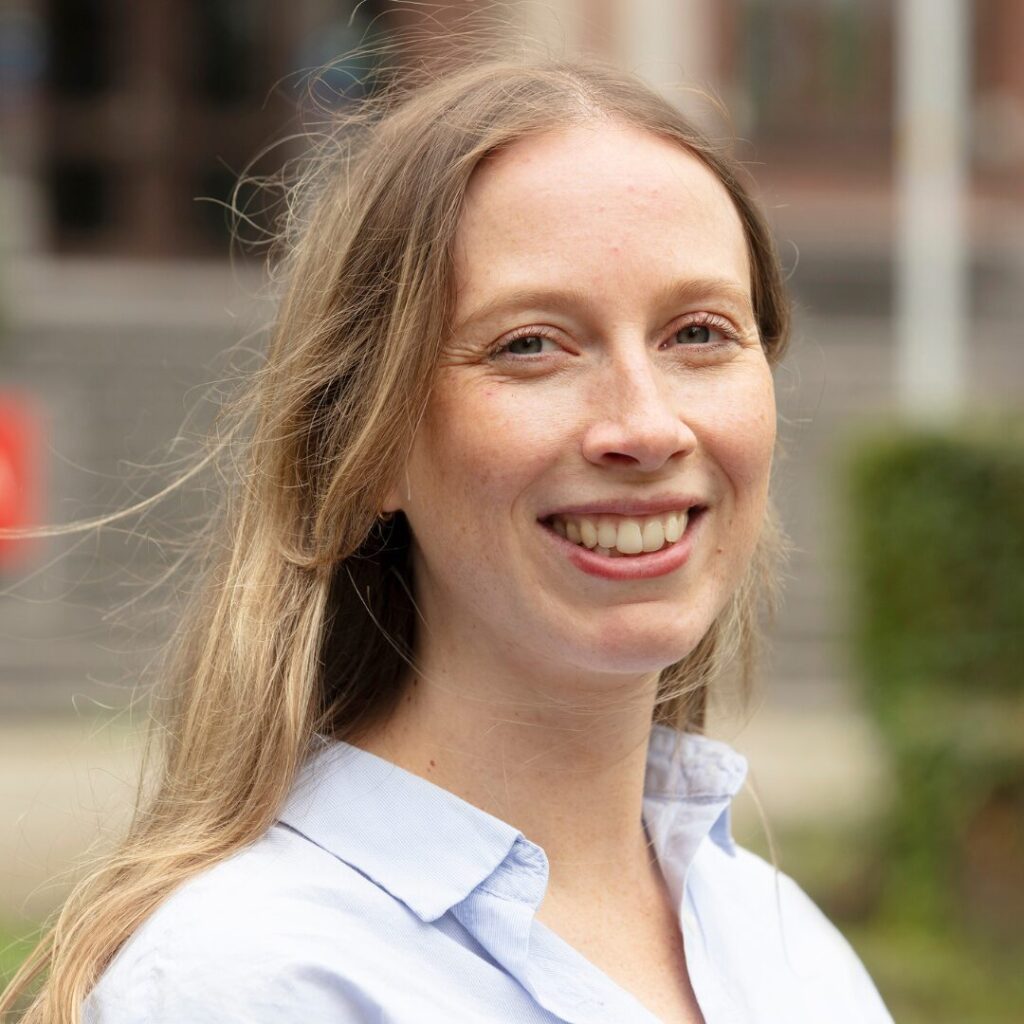
‘For many participants, MONDO is a way to prevent them from getting lonely. To hear something like that is very motivating for us.‘
Lotte Coenen, International Staff Office
Is it easy to come up with the activities?
Parul: ‘Yes, ideas always arise very spontaneously. We have bimonthly meetings, during which we divide up the organisation of the activities. The schedule is usually determined about five to six months in advance.’
Lotte: ‘The participants can also tell us their own ideas. And sometimes we get suggestions from the outside. For example, imec came up with the idea for a climate workshop itself.’
Parul: ‘It’s a very organic process, without having to take turns or anything like that. We have a very motivated team and we all get along really well. And what also helps, is that we often also like the activities ourselves (laughs).’
How do you inform the target audience about everything you do?
Katleen: ‘Everyone in the target group automatically receives our newsletter, where we announce our activities and explain what we stand for. The activity schedule is also on our website and we have a Facebook page.’
Kristel: ‘People are also informed of what we do at student welcome days, by the Human Resources Department and at Doctoral Days.’
Do you often see friendships blossom between the participants?
Lotte: ‘Definitely. When we have a drink after an activity, the participants often stick around long after we’ve gone. Colleagues and students from the same faculty who don’t know each other sometimes also meet through MONDO.’
Kristel: ‘The participants also call upon each other to solve practical problems. In our MONDO WhatsApp group, we see regular questions on housing, buying items, admin, etc.’
‘At any given activity, we’ll easily have people of twelve different nationalities. That diversity is a big added value.’
Kristel De Poorter, Antwerp Doctoral School
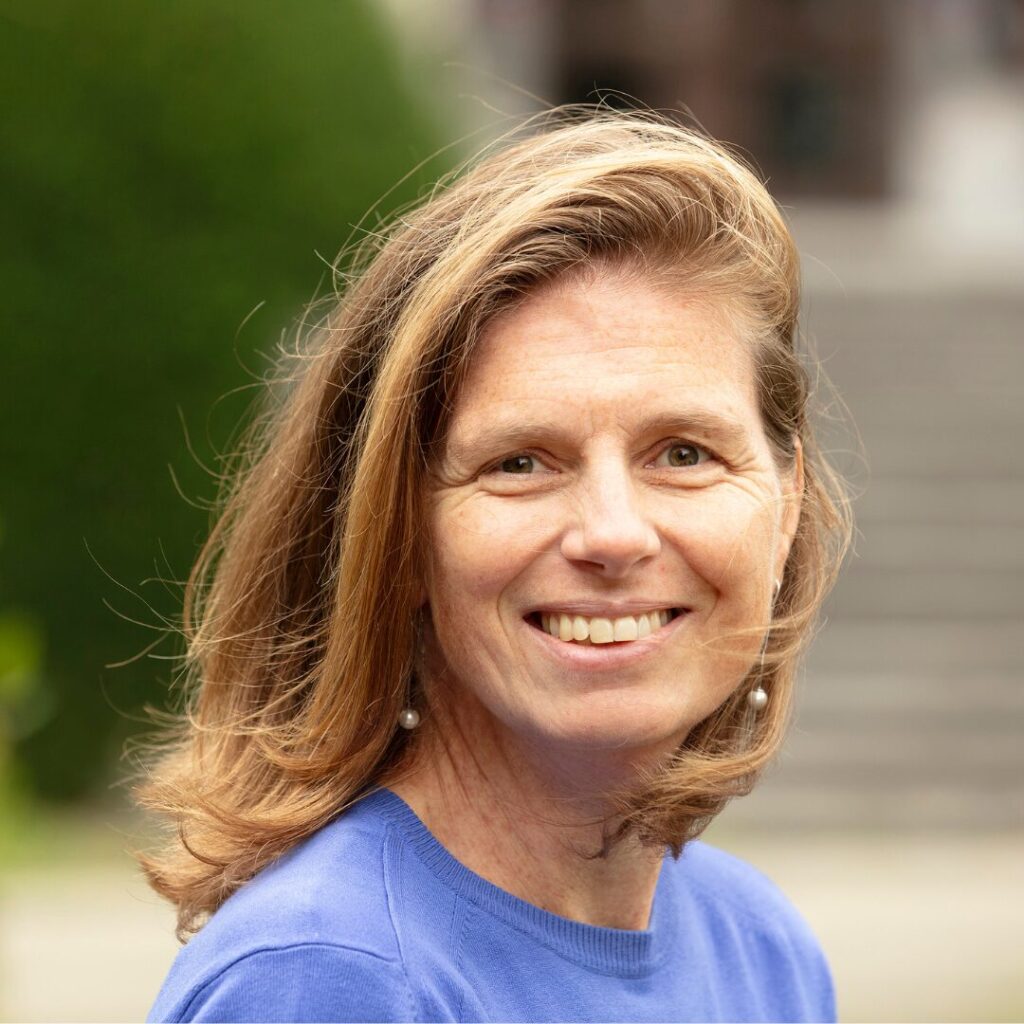
It also seems like a nice way to get to know other nationalities and cultures.
Kristel: ‘Yes, during the activities the participants connect across cultures. At any given activity, we’ll easily have people of twelve different nationalities. That diversity is a big added value.’
Lotte: ‘Of course it does happen that people from the same nationality seek out each other’s company, but at the same time we see that cultural differences are easily forgotten. When we’re on an outing, we’re all just people having a good time. I also enjoy getting to know other cultures through MONDO. And at the same time, you grow more aware of your own culture.’
Do tell.
Lotte: ‘What I often hear is that Flemish people plan their schedules at least a month ahead, leaving no room for spontaneity. It doesn’t happen very often that we go out for drinks after work. Another thing is that we stay lifelong friends with our former classmates or scout buddies, making it very difficult for newcomers to integrate.’
Parul: ‘In most countries, going off to university also means moving and building a new circle of friends. In Belgium, that’s not always the case, far from it.’
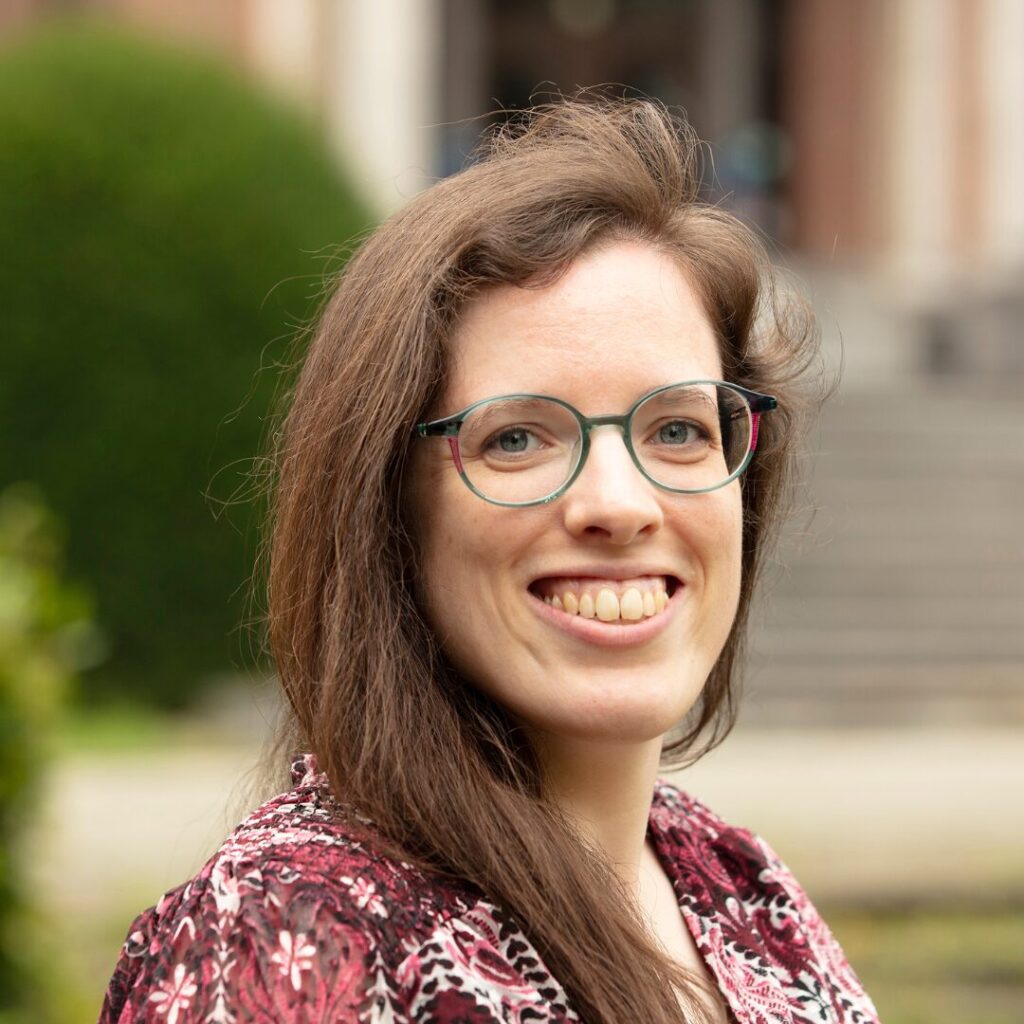
‘At the kick-off event, we do welcome a lot of people, so we can introduce as many newcomers as possible to MONDO.’
Katleen Anthierens, Antwerp Doctoral School
You’ve been around for five years. Cause for celebration?
Katleen: ‘Like every year, we’ll have a kick-off event, on 17 October. Professor Petra Meier of the Department of Political Science will give her well-known lecture ‘Belgium for beginners’ that day. This will be followed by a barbecue. At the kick-off event, we do welcome a lot of people, so we can introduce as many newcomers as possible to MONDO.’
Lotte: ‘We also had MONDO T-shirts printed for the occasion, which we’ll hand out during the activities. This idea was inspired by a participant, who said it was a pity he didn’t have anything to remember MONDO by. This says a lot about how important MONDO was for him.’
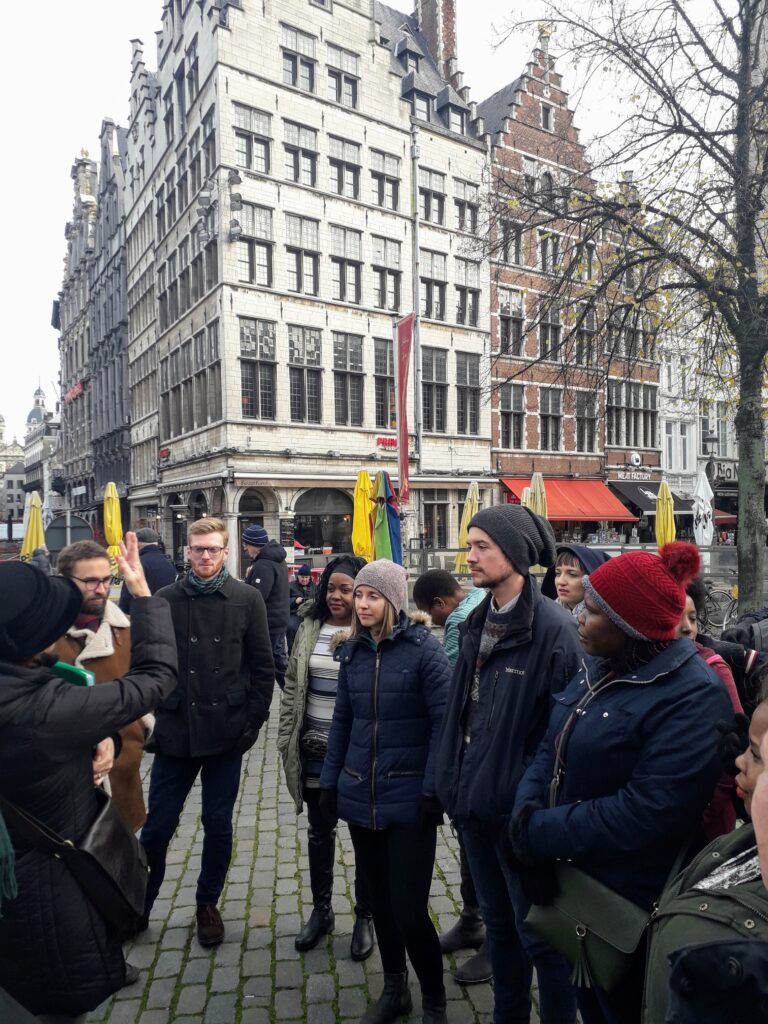
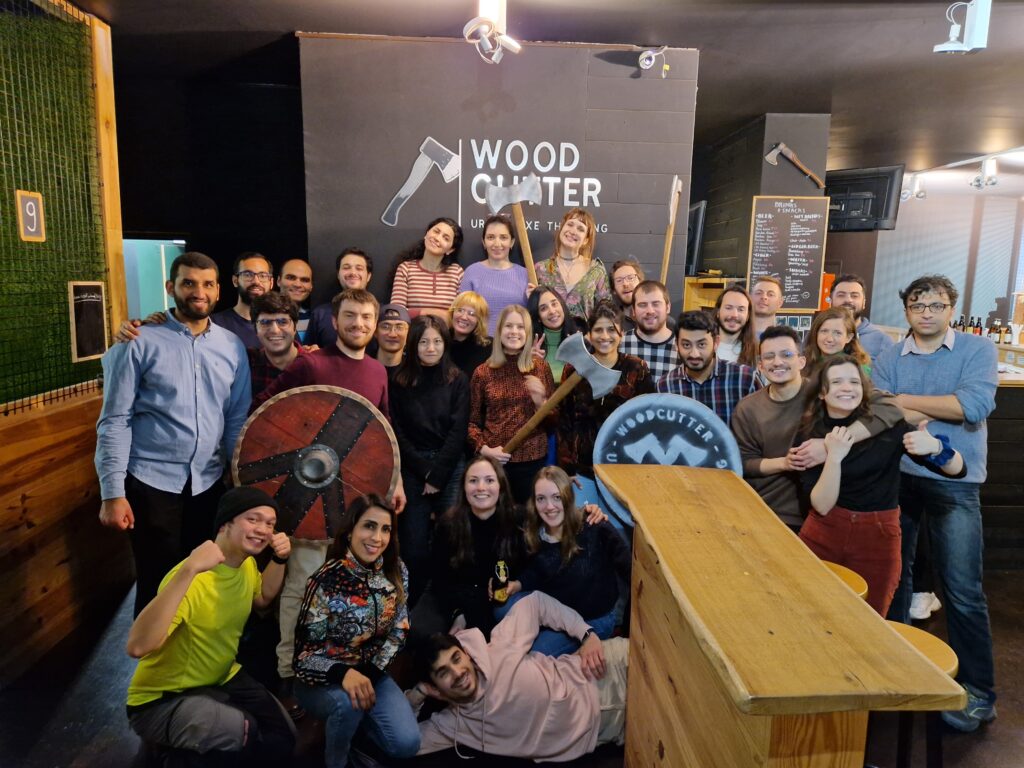
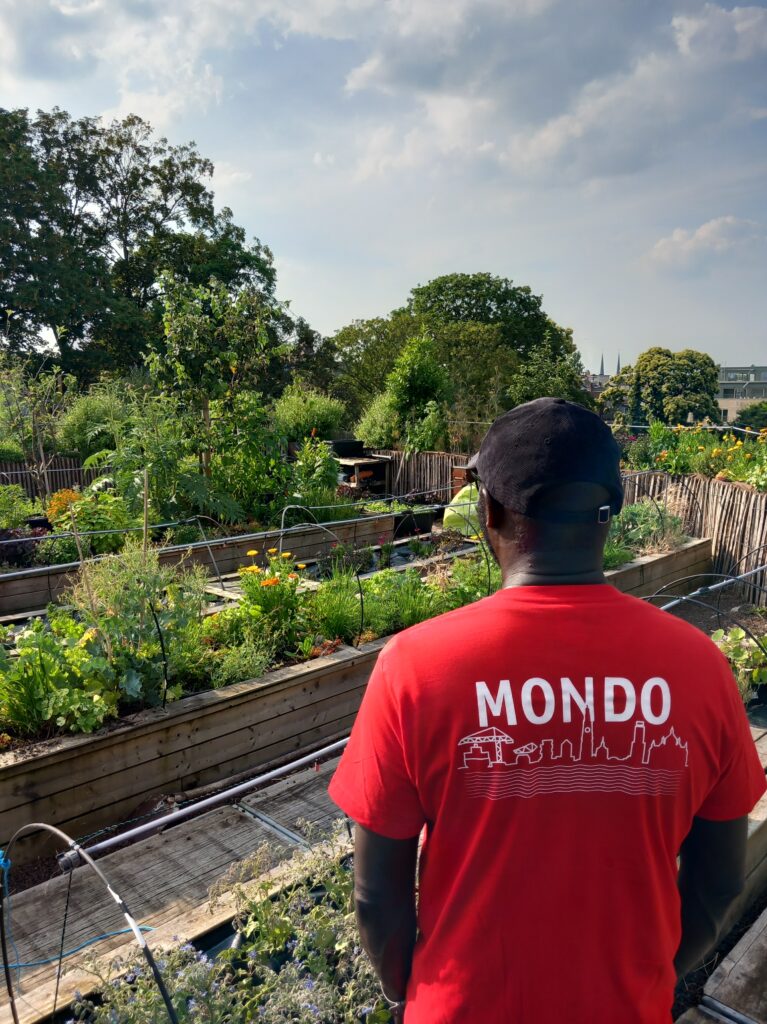
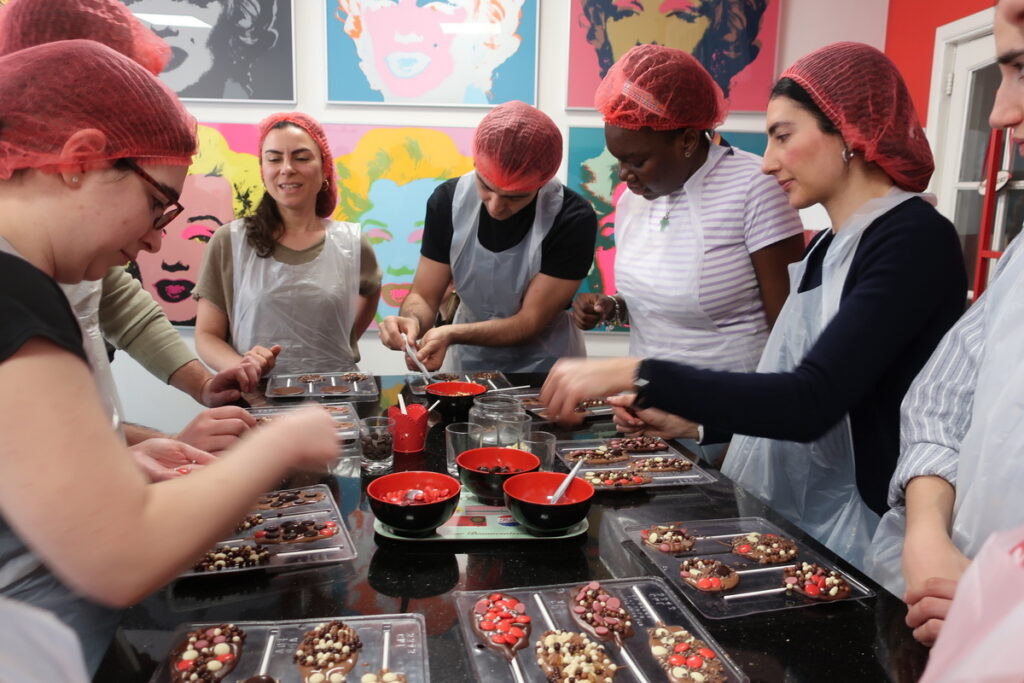
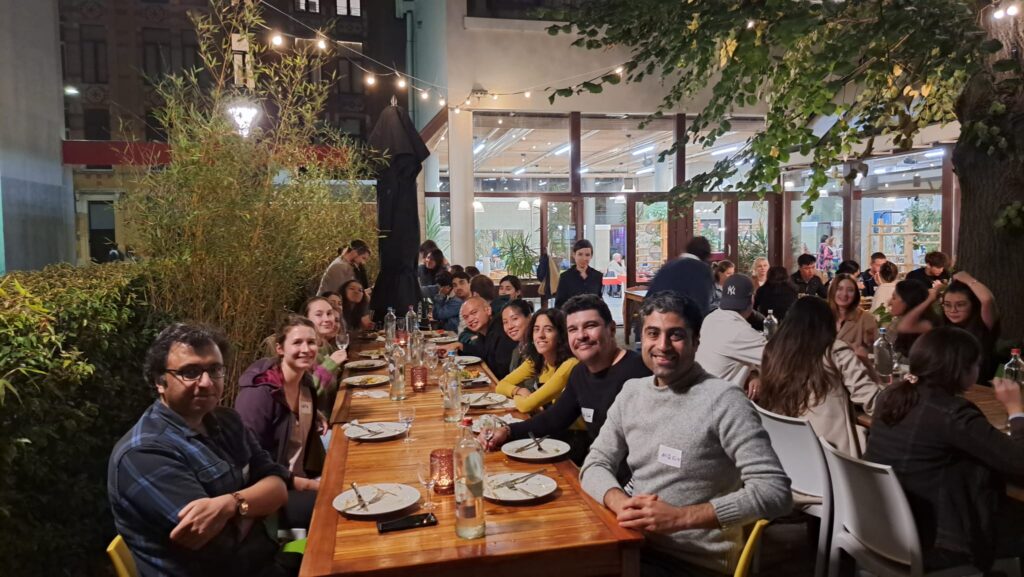
MONDO aligns well with our line of strength “At home in the city, but with a view to the world”. The lines of strength are guidelines on how you can shape your work. Now it’s up to you to put the mission in motion. Find out what else UAntwerp stands for.


